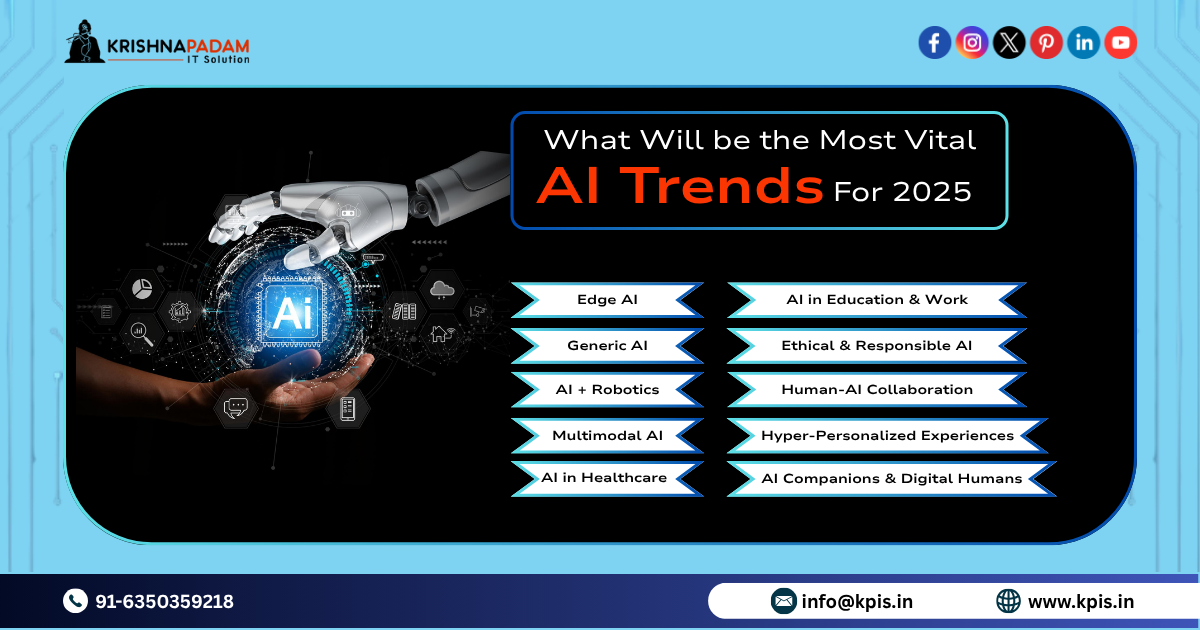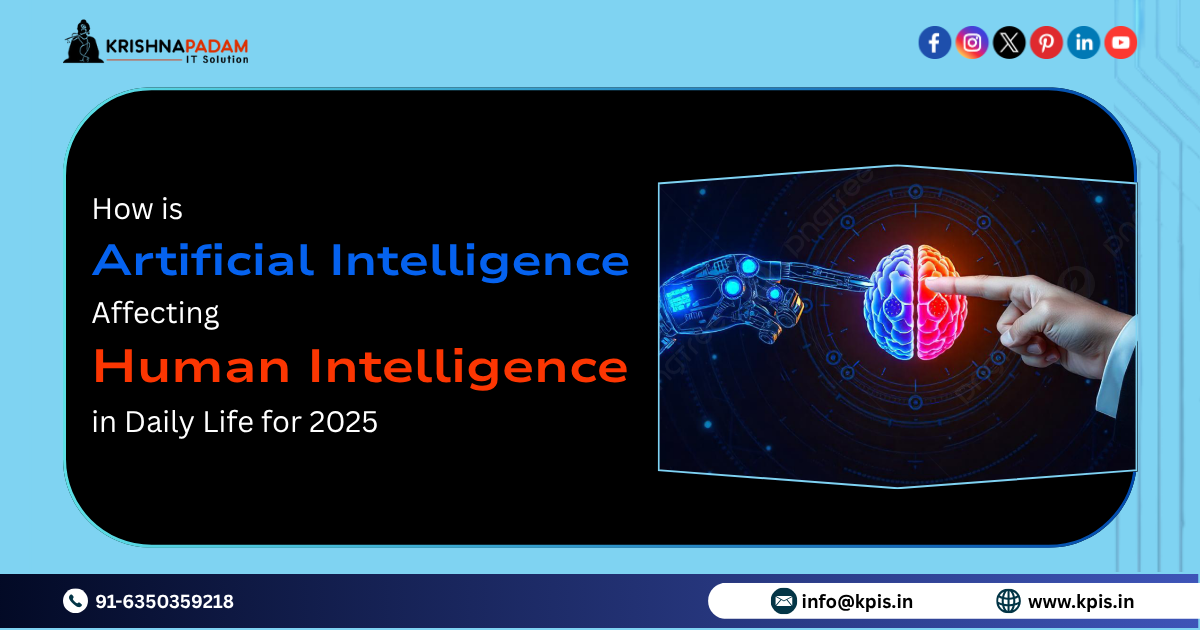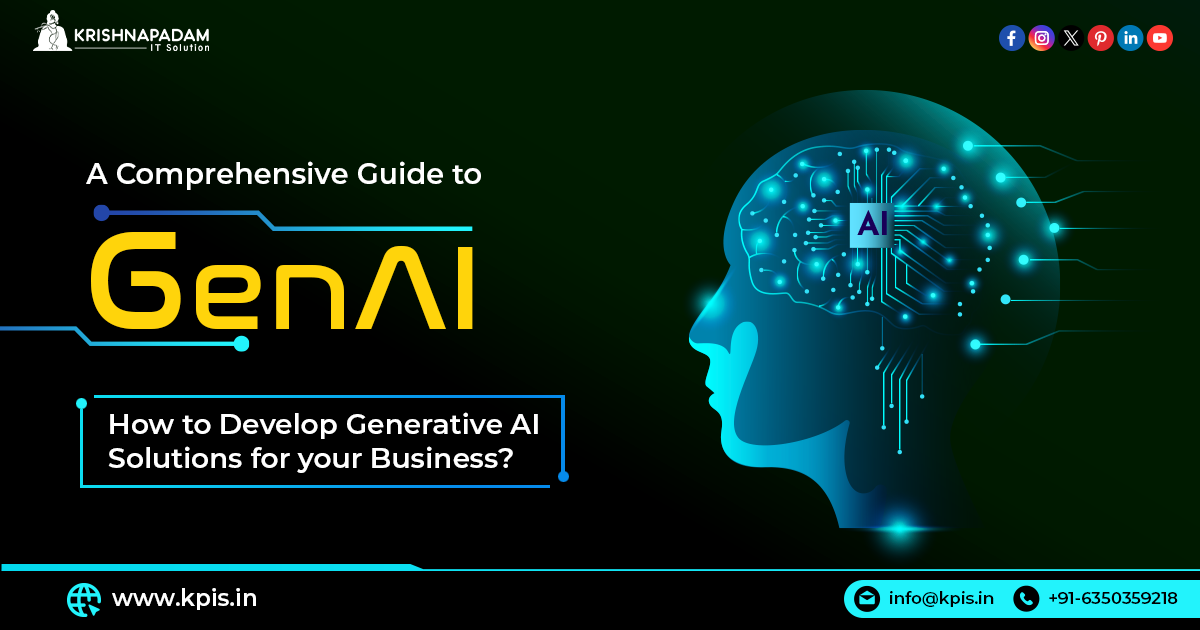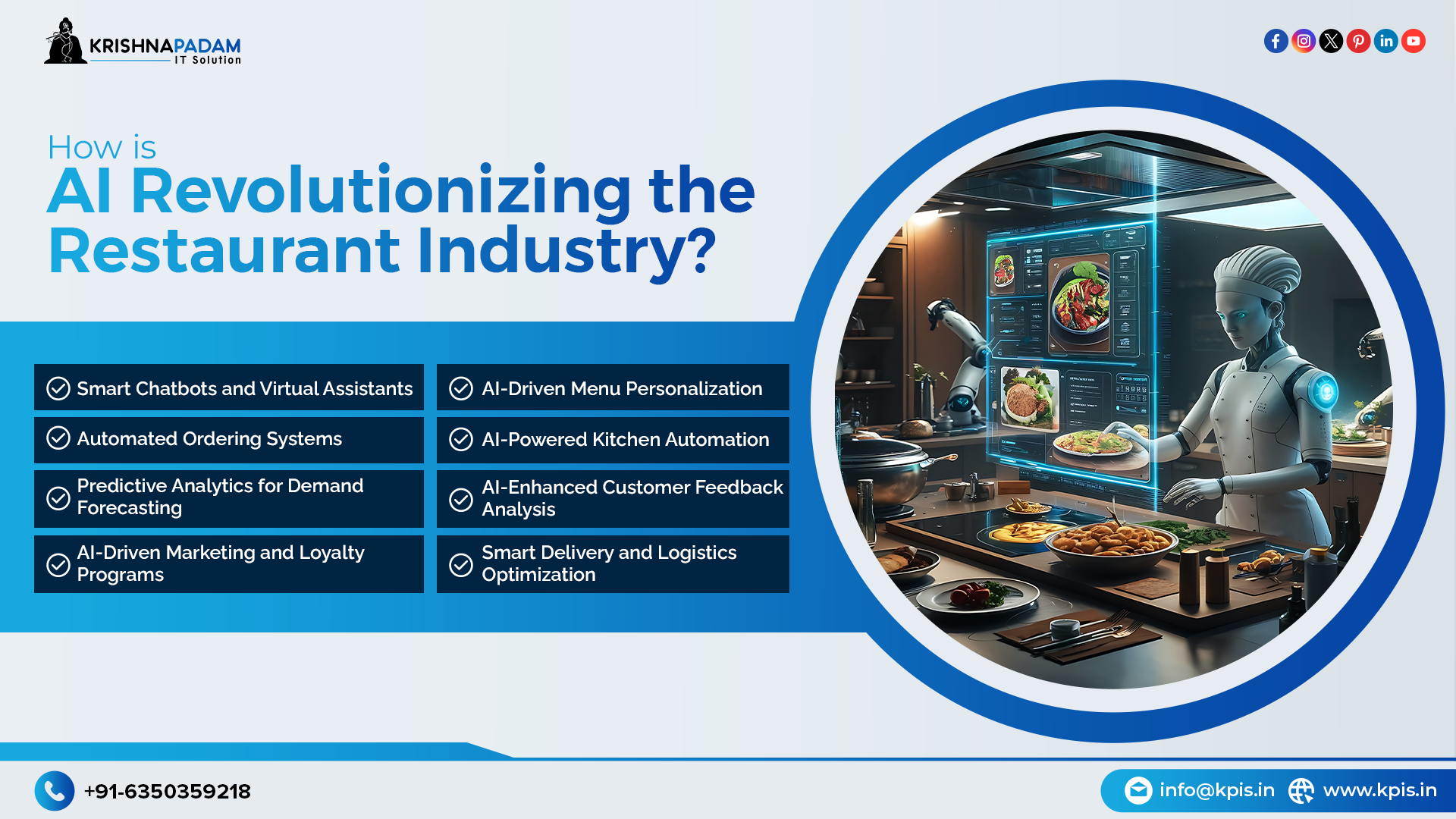In the rapidly developed digital age, Artificial Intelligence (AI) is no longer a future concept. As we step into 2026, AI continues to redefine our daily routines of how we communicate, work, and learn how we make decisions. But, as we rely on intelligent machines, a vital question arises: How is AI Affecting Human Intelligence in Daily Life for 2026?
In this blog, we will explore the evolving relationship between AI and HI, how they interact in daily life, their key differences, and what it means for our future.
What is Artificial Intelligence (AI)?
Artificial Intelligence (AI) is the branch of computer science that enables machines to simulate human intelligence. It includes learning from experience (machine learning), recognizing patterns, understanding languages, and making decisions—often faster and more accurately than humans.
AI systems range from simple automation tools, such as chatbots, to complex models capable of analyzing large datasets, generating content, and even simulating creative thinking. It is behind voice assistants like Siri, the recommended engine on Netflix, fraud in banking, and autonomous driving technologies.
What is Human Intelligence (HI)?
Human Intelligence (HI) is the mental ability we use to learn, adapt, think critically, make decisions, and express emotions. Unlike AI, it is the formation of consciousness, sympathy, morality, intuition, and cultural experiences.
While AI can analyze and predict, only humans can apply moral decisions, understand emotional references, and generate original insight rooted in real-world difficulties. HI is not only about the facts it is about life and understanding others through living experience.
How is AI Affecting Human Intelligence in Daily Life for 2026
By 2026, AI’s effect on our day-to-day lives will be more in-depth than ever. From personalized apps to intelligent workspaces, AI is explaining how we assume, learn, and interact. Here, let’s explore How is AI affecting human intelligence in daily life for 2026-
Work and Productivity
AI devices write emails, generate reports, and automate repetitive tasks. It increases efficiency but may reduce the possibility for humans to engage in significant thinking or problem-solving.
Learning and Education
AI is transforming education with adaptive teaching platforms that personalize material based on a student’s speed and method. Although it elevates performance, it can reduce the chances for self-add and autonomous problem-solving.
Healthcare
AI supports rapid diagnosis and medical research. However, emotional intelligence remains essential in kindness, trust, and understanding supervision.
Social Media & Content
AI algorithm decides what you watch online. While convenient, this can also create echo sections that affect our thinking and limit diverse approaches.
Everyday Decisions
From route suggestions to shopping, AI helps us to make options. However, outsourcing many daily decisions may reduce our ability to think critically or evaluate options.
What is the Difference Between AI (Artificial Intelligence) and HI (Human Intelligence)?
While both AI and HI involve learning, problems, and decision-making, they differ in how and why they work. Let’s break down the significant difference between how AI and HI work and how their interactions affect us-
Origin
- AI is a technical invention created by humans using programming languages, algorithms, and computational models. It works on artificial systems that follow intelligent behavior.
- Human intelligence is the result of natural development. It is biologically embedded in the human brain and develops over time via life experiences, genetics, and environmental effects.
Learning Process
- AI learns through machine learning, deep learning, and neural networks. Improving your performance and accuracy over time requires structured data and comprehensive training using large datasets.
- However, HI learns from personal experiences, emotional reactions, social interactions, and a wide variety of sensory inputs. Human beings can normalize knowledge, customize limited data, and often learn through testing and error.
Speed and Efficiency
- AI excels in processing vast amounts of rapid information. It can perform repetitive tasks with high precision, speed, and stability without fatigue- making it ideal for automation and data analysis.
- HI is comparatively slower in terms of data processing and computation but excels in understanding nuances, references, and abstract concepts that often ignore machines.
Creativity
- AI can produce materials such as music, art, or writing by analyzing existing data and patterns. However, it lacks original inspiration and can not truly innovate beyond what it has learned.
- HI is powerfully creative. Humans can visualize entirely new ideas, communicate emotions through art, write expressive stories, and develop tools or visions that never existed before, all fueled by emotion, intuition, and curiosity.
Emotional Intelligence
- AI can simulate emotions using tone analysis or emotional recognition, but it does not feel or experience emotions. It cannot genuinely sympathize or relate to the human level.
- HI is rich in passionate depth. Humans can experience, understand, and manage their feelings and others, making emotional intelligence essential for relationships, leadership, and compassion.
Adaptability
- AI typically performs best in a structured environment and within clearly specified regulations. When it comes in contact with unfamiliar input or real-world chaos, its performance may be low until it is withdrawn.
- HI is naturally adapted. Humans can navigate complex, unexpected environments, switch between various tasks, and also improve solutions when facing new or unclear situations.
Error Handling
- AI systems may repeat errors if they haven’t been retrained or corrected through new data. They cannot reflect or comprehend why an error occurred unless explicitly programmed.
- HI learns from past errors, represents failures, and adopts behavior accordingly. This self-awareness allows humans to grow intellectually, emotionally, and socially over time.
Decision Making
- AI bases its decisions on data-operated arguments, algorithms, and statistical possibilities. It is consistent and purposeful but may lack ethical judgment.
- HI blends logic with emotions, intuition, deals, and moral ideas. Human decisions are often influenced by culture, sympathy, and personal beliefs, making them finer and overall.
What Will be the Most Vital AI trends in 2026?
Artificial intelligence technologies are transforming quickly. Explore the numerous vital trends designed to reopen AI technologies in 2026-

Generic AI Everywhere- AI tools can now create tasks, images, videos, and music, making content creation faster and more accessible in industries.
AI Companions & Digital Humans- Emotionally aware AI avatars are being utilized to provide human-like interactions in healthcare, customer service, and education.
Hyper-Personalized Experiences- AI optimizes shopping, learning, entertainment, and healthcare to match individual preferences and needs.
AI + Robotics- Flear robots are doing complex physical tasks in homes, factories, fields, and shops, improving efficiency and security.
Edge AI- The AI now moves directly on equipment (such as phones and wearables), enabling rapid response and better privacy without the need for cloud access.
Ethical & Responsible AI- There’s a robust emphasis on making AI fair, transparent, and reliable, with more regulations guiding its responsible use.
AI in Education & Work- AI powers help upskill workers through personalized learning and individual progress via robust training systems.
AI in Healthcare- AI aids in the early detection of diseases, treatment planning, and drug development, resulting in quicker and more precise healthcare.
Multimodal AI- The new AI models understand and combine lessons, voice, images, and videos, allowing more natural and powerful interactions.
Human-AI Collaboration- AI is becoming a productivity partner that helps humans to improve their work, not them.
Will AI Replace Humans?
No, but it will change specific tasks.
While AI will continue to enhance productivity and take over various tasks, it is highly unlikely to replace humans entirely. Instead, AI will increase human capabilities, serving as a powerful tool to help people perform better at their jobs, enhance creativity, and solve complex problems. Human qualities such as sympathy, moral logic, and consciousness will remain irreparable by AI in the future. The key for individuals and businesses in 2026 is transformation to build hybrid skills that combine human insight with AI capacity.
Also you can read– Comprehensive Guide to GenAI for 2026: How to Develop Generative AI Solutions?
Leading AI Development Company- KPIS Pvt. Ltd.
Are you ready to succeed in the age of AI? As we move toward 2025 and beyond, we KrishnaPadam IT Solutions- leading AI Development Company, understand that embracing AI and digital transformation is vital for firms looking to blossom in an increasingly tech-driven world. Whether you are willing to integrate AI into your business processes, increase operational efficiency, or equip your team with the right skills for the future, we are here to guide you at every step. What we offer:
- AI Integration Services:- Seamlessly combine AI solutions into your corporation processes, from automation to data analytics, and unlock new development possibilities.
- Custom AI Solutions:- Custom AI tools designed to fulfill your unique business needs, enhancing customer experience, decision-making, and overall efficiency.
- Employee Training & Upskilling:- We provide comprehensive AI and technology training to empower your workforce, ensuring they stay ahead in this rapidly evolving digital landscape.
- End-to-end IT support:- From preliminary consultation to complete implementation and ongoing maintenance, we are your reliable IT partners.
Conclusion
Are you ready for your business?
Contact us today or hire AI Developers from us to explore how KrishnaPadam IT Solutions can help you harness the power of AI and technology to remain competitive, enhance productivity, and prepare your business for success in 2026 and beyond.



